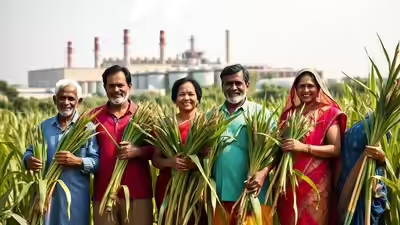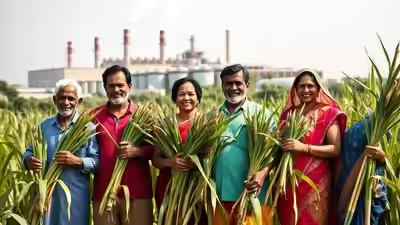
Sugar Ethanol Bioenergy Int- In a significant policy shift, the Indian government has removed the longstanding cap on the amount of sugar that can be diverted for ethanol production in the 2025–26 Ethanol Supply Year (ESY). The Food Ministry issued this move on September 1, citing unprecedented monsoon-driven sugarcane surplus and a need to support the ethanol blending targets. Industry leaders have welcomed the change, calling it a “jackpot for farmers,” as it promises quicker cane payments, improved cash flow for mills, and more stable sugar prices.
Under the previous year’s restrictions, sugar diversion was capped at 4 million tonnes—and temporarily reduced to 3.3 million tonnes—resulting in approximately 340 crore litres of ethanol produced. With the new unlimited diversion, industry bodies estimate sugar diversion could reach 5 million tonnes, potentially yielding 450–500 crore litres of ethanol.This policy comes amid India’s push to achieve a 20% blending target (E20) in petrol by ESY 2025–26—a major element of the National Biofuel Policy—and the move is expected to significantly accelerate ethanol availability. Leading sugar mills, including E.I.D.-Parry, Balrampur Chini, Shree Renuka, Bajaj Hindusthan, and Dwarikesh Sugar, have already ramped up ethanol production capacity in anticipation of the policy change.
To ensure that sugar supply to consumers remains smooth, the government plans to monitor sugar diversion closely throughout the year Devdiscourse+6Reuters+6Samco+6.Market response to this policy shift has been swift and enthusiastic. Sugar industry stocks, particularly Rajshree Sugars, Balrampur Chini, and others, soared—some rallying by up to 20%—in reaction to the removal of caps and favorable policy climate .
Complementing these changes is a legal development: India’s Supreme Court dismissed a petition opposing the nationwide implementation of 20% ethanol-blended petrol (E20), removing a significant legal hurdle and reinforcing the government's commitment to the clean-energy transition and farmer support



